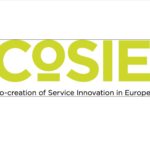The CoSIE Constellations for Co-Creation in Public Services
Year of production: 2021
Photo by Kindel Media
The CoSIE Roadmap for
Co-creation uses the analogy of different constellations of connected ideas as a framework to explain the concepts that have been garnered from the analysis of experiences of frontline service providers, managers, citizens and other
stakeholders during the 10 pilot services where
co-creation has been applied in CoSIE.
The Roadmap and it accompanying products present the material in a format that makes it attractive, readable and/or watchable.
CoSIE has undergone a whole evolution in terms of its own learning. One of the lessons learned has been that the term “hard to reach” is principally top-down thinking and does not fit with the co-creation association of a shift in power towards citizen as a major player in the decision-making processes that surround public service provision. The map itself suggest that it is sometimes services themselves that are hard to reach, especially for some sections of society and we have to look for ways in our different contexts of overcoming those barriers.
Another conclusion of the CoSIE pilots is that it is often more effective to go to where people are than expecting them always to go to wherever the public administration is administration moving away from the mindset that public services are doing citizens a favour and it is always up to them to find the resources to access services.





